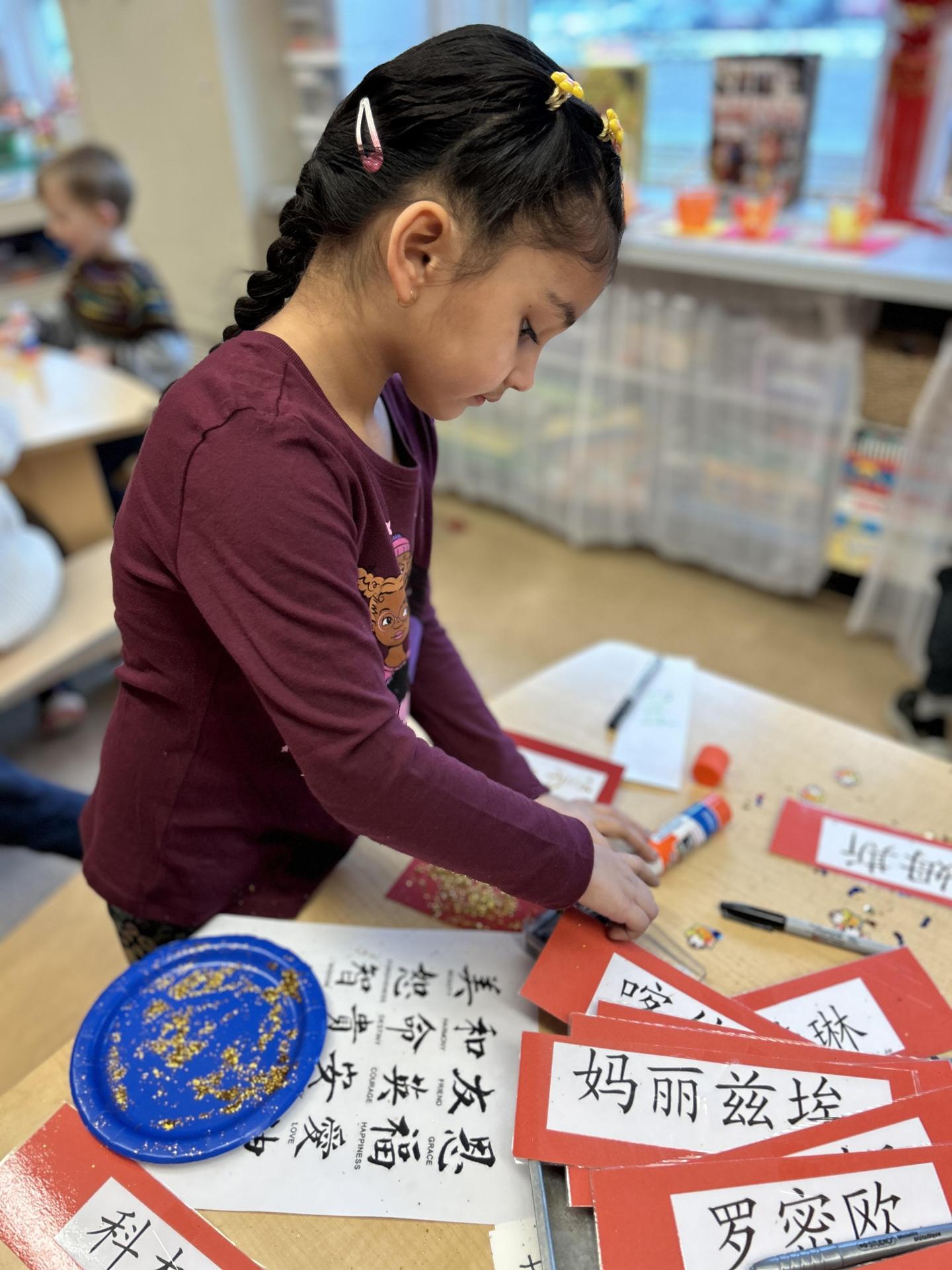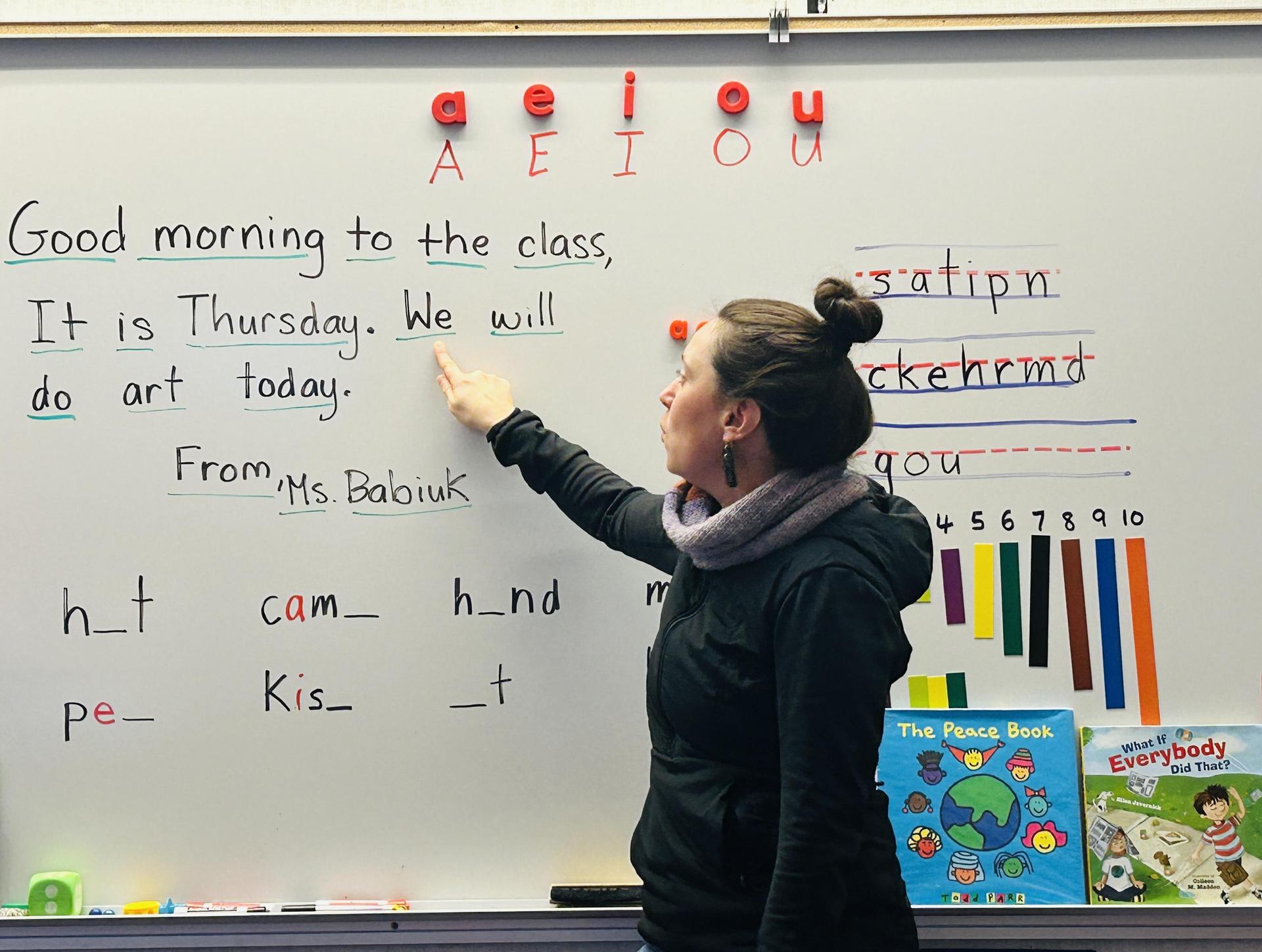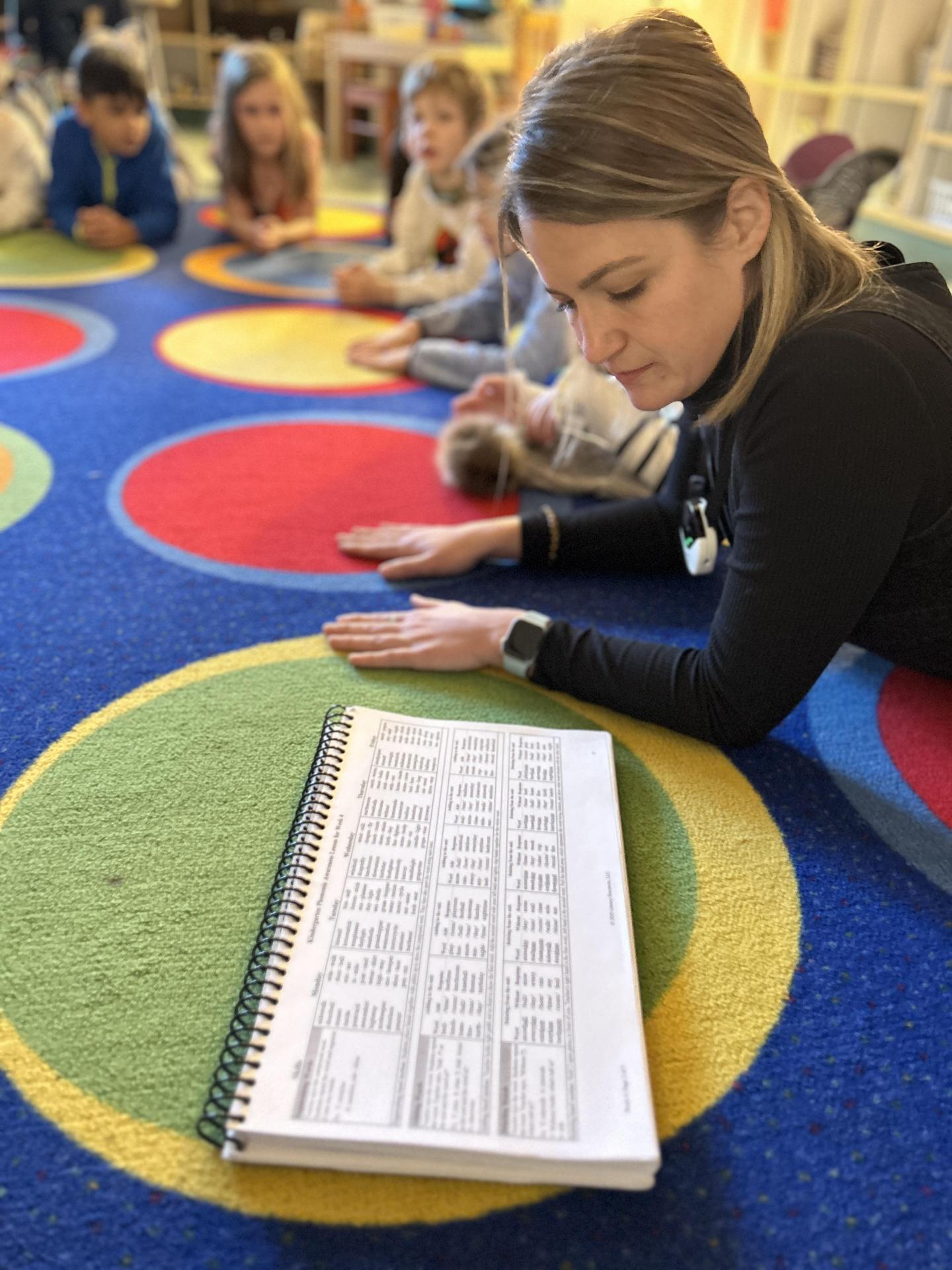Literacy

 Defining Literacy
Defining Literacy
The B.C. English Language Arts curriculum is designed to engage children in developing:
- Strong communication, thinking, and reflective skills
- An understanding and appreciation of language, literature, culture, multiple perspectives and worldviews
- The capacity to engage fully as literate and responsible citizens in a digital age
"Literacy is the ability to understand, critically analyze, and create
a variety of forms of communication, including oral, written, visual, digital,
and multimedia, in order to accomplish one's goals."
- B.C. Ministry of Education and Child Care

Balanced Literacy
Literacy learning is both a foundation and a process. We have learned that a balanced approach to literacy is the best way to support learners in an ever-changing world.
Educators help students:
- Identify as capable literacy learners
- Find joy in literacy activities
- Develop literacy skills over time
Balanced literacy places equal value on:
- Learning as a foundation involving the teaching of foundational literacy skills
- Learning as a process involving the experiences of inquiry, exploration, and play
Effective literacy instruction integrates research-based practices with adaptive teacher expertise. This might involve making use of aspects of a prescribed program while finding ways to personalize, adjust, and extend in response to individual, group, and whole class dynamics.
According to Adrienne Gear, balanced reading instruction engages both the "reading brain" and "thinking brain" to support learners in decoding and comprehending (meaning-making).
"A proficient reader reads all the words and understands them."
- Adrienne Gear

Learning as a Foundation
Foundational literacy skills are essential building blocks that support students in developing communication, reading, writing, and comprehension skills.
Oral Language |
Oral language is the system used to receive the thoughts of others and to express our knowledge, ideas, feelings, and perspectives. It includes both speaking and listening. |
Phonological and Phonemic Awareness |
Phonological awareness is the ability to recognize and manipulate the spoken parts of words. Phonemic awareness is the ability to identify and manipulate individual sounds in spoken words. |
Phonics |
Phonics is the ability to match the sounds of a spoken language with individual letters or groups of letters and apply this knowledge to reading and writing. |
Alphabetic Knowledge |
Alphabetic knowledge is the ability to recognize upper and lowercase letter names and identify their sounds. |
Writing |
Writing is the act of recording marks to communicate thoughts and ideas on a visual medium using a set of symbols which represent language. |
Concepts of Print |
Concepts of print is the understanding that print carries meaning, is organized in a particular way, and serves various functions. Print can be found in the environment, in books, and on screens. |
Spelling |
Spelling is the forming of words using letters and symbols according to commonly accepted usage. |
Word Recognition |
Word recognition is the ability to recognize written words with increasing ease. |
Reading |
Reading involves constructing meaning from written marks, words and symbols. |
Metacognition |
Metacognition is the awareness and understanding of one's thinking. This involves the use of reflective practices. |
The science of reading research supports us in understanding the importance of:
- Developing awareness of the segments of sounds in speech and how they link to letters
- Teaching students to decode words, analyze word parts, and write and recognize words
- Ensuring that each student reads everyday to support accuracy, fluency, and comprehension

"Just as learning to read is a lifelong journey, so is learning how to teach reading."
- Martha C. Hougen & Susan M. Smartt

Learning as a Process
Inquiry, exploration, and play are essential social and experiential learning opportunities that enable students to take risks and try new things as they develop their communication, reading, writing, and comprehension skills.
Inquiry |
Ideas are explored through questions and provocations. Inquiry is investigation that involves asking questions, exploring possibilities, accessing resources, making connections, and addressing problems. Inquiries have no preset outcomes but emerge organically as children and adults think alongside one another. |
Exploration |
An intentionally set-up environment and materials provoke interest and curiosity and invite children to engage in hands-on learning, often alongside peers. Rich exploration design affords children opportunities to observe, analyze, experiment, innovate, create, and discover. |
Free Play and Play-Based Learning |
Free play is a self-chosen and self or peer-directed activity that is focused on a joyful process and not the product. Play-based learning includes child-directed, teacher-guided, and teacher-directed play. Play engages children in active, imaginative opportunities and experiences. |
Research by Stuart Brown (2009) and Peter Gray (2013) support us in understanding the importance of the connection between play and:
- Literacy learning
- Human brain development
- Social and emotional development
- Overall wellbeing
"Play is the work of children."
- Peter Gray

Assessment
Key Practices |
|
Tools and Resources |
Learning as a foundation:
Learning as a process:
|
"On assessment: measure what you value, instead of valuing only what you can measure."
- Andy Hargreaves

The Early Learning Profile (ELP) is a key foundational skills assessment tool at the early primary level intended to assist teachers in planning forward for personalized instruction and intervention.